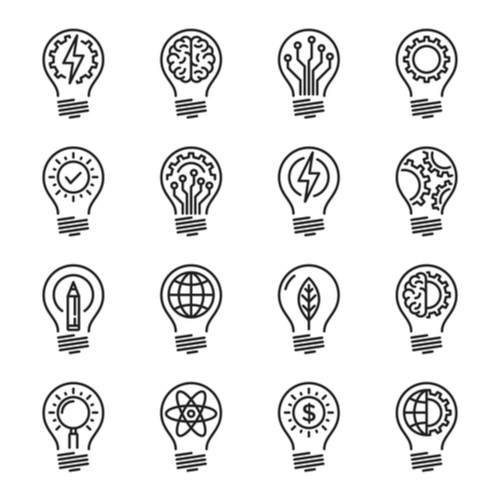The prominent female reformer Frances Perkins, despite working her whole life in politics, uncharacteristically chose to study chemistry at college. Contrary to how this kind of story usually ends, Perkins didn’t go on to have a successful career in chemistry. Instead, she’s known now for assisting Roosevelt with the New Deal and for her work on the Hull House with Jane Addams. She was the first woman to ever be in the U.S. presidential line of succession. She wasn’t lacking direction in high school—that wasn’t why her undergraduate major wasn’t political science. She studied chemistry precisely because it was her worst subject, and also a legitimizing subject that was proof of her formidable intellect. The idea was basically that if she could succeed at her worst subject, she would become unstoppable.
Although much less common today, I think her reasoning is sounder than it might seem at first. In fact, I chose to study electrical and computer engineering for reasons that are not dissimilar. Yes, I knowingly and deliberately chose a major that doesn’t play to a lot of my natural strengths. Pushing yourself every day in every class to rewire your brain isn’t easy, especially when most of the rest of the class is playing to their strengths. I already know that I don’t want to work in signal processing, software engineering, or hardware design, and I knew that from the beginning. In light of that my choice seems to make very little sense, especially if you consider the fact that my performance in these classes factors into my GPA, which has many future ramifications.
But the tradeoff is for nothing less than a new way of thinking. I learned recently that thinking is mostly split into two modes, visual and verbal. A few years ago I would have called myself a visual thinker: years of drawing gave me good spatial visualization; I draw diagrams to remember things. But it really wasn’t until I started studying EECS that I understood what visual thinking really is, and how much of a verbal thinker I had been before. I began to understand what it means to hold concepts in mind without any verbalization of them. It’s a bit like the different between the two conceptions of Fourier transforms shown below:
A) A signal can be broken down into sums of sines and cosines. These sines and cosines are scaled differently depending on the final product signal you are using. You add up every possible wavelength of sines and cosines, some with zero coefficients if necessary, to obtain your desired result. Finding this set of sines and cosines is called a Fourier series.
B)
This still comes at a price other than just class standing. Honing the skills that improve my visual thinking takes away from time that I could use to keep up my verbal skills. I read faster than most people, and have always had a large vocabulary, but as my engineering studies have intensified I’ve noticed the number and variety of words I use in daily conversation decreasing. Random words sometimes lie frustratingly out of reach—I spent an entire day recently trying to remember the word perfunctory. I sometimes question why I would choose to give up the things I am most naturally talented at, and those that I might have had a shot at being the best at, in favor of studying a subject that I will never be among the best in. Such is the sacrifice of unschooling.
But to mourn this loss of fluidity with words would be in many ways to miss the whole point: that through this ‘unschooling’ I’ve had the extraordinary privilege of exploring two very different mental modes. All of us understand that other people think differently than we do. It’s completely different to experience this for yourself. The advice to purse schooling-by-unschooling is not the same advice as that of people who tell you to pick a practical degree. Your unschooling may or may not be in an actual school, and it may or may not be in a field deemed ‘high-value.’ That’s not really the point—the point is to discover, or even create, a new side of yourself.
Unschooling is often uncomfortable, sometimes viscerally so. It combines two difficult endeavors: facing failure, and self-experimentation. A recent New York Times article suggesting that people should make more experiments out of themselves recounted the author’s difficulty with trying off-brand soda. Even this very minor self-experimentation became tremendously difficult. An experiment to diversify one’s thinking, then, which is a much larger and longer-term experiment, is correspondingly much harder. Staking a bet on unschooling in the way that I have done is absolutely a high-risk tactic, but, arguably, also high-reward. It’s also very possible to undertake lighter-commitment unschooling.
But with the intersections of sciences and humanities becoming ever more valuable, trying another way of thinking is becoming more and more worth the high costs of unschooling. Walter Isaacson, biographer of Steve Jobs, says in his new book Innovators: “innovation will come from people who are able…to link humanity to technology…who can flourish where the arts intersect with the sciences and who have a rebellious sense of wonder that opens them to the beauty of both”. That’s what unschooling is about, that “rebellious sense of wonder”. In some ways this rebellion is against prevailing notions of education, and in some, even more important ways, this rebellion is against yourself.


